
EFL · National City (The United Kingdom)
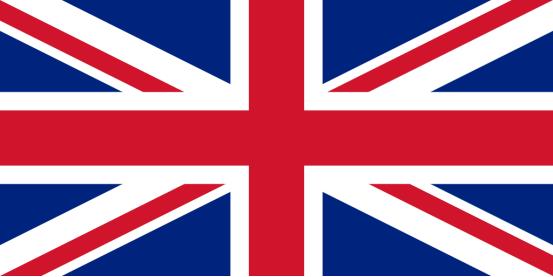
Buckingham Palace
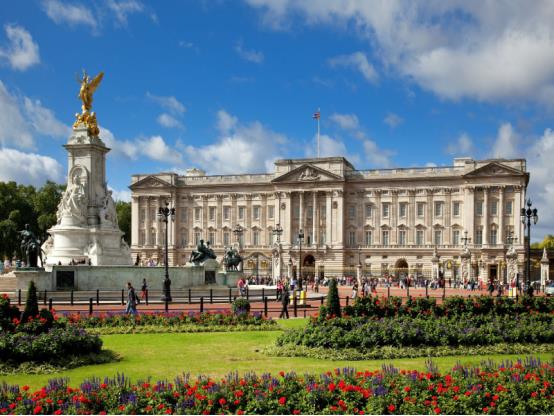
United Kingdom of Great Britain and Northern Ireland (United Kingdom) The United Kingdom of Great Britain and Northern Ireland (United Kingdom) is located in the United Kingdom.
[Area] 244,100 square kilometers (including inland waters). 130,400 sq km in England, 78,800 sq km in Scotland, 20,800 sq km in Wales and 14,100 sq km in Northern Ireland.
[Population] The UK has a population of 66.43 million (in 2019), with the English (Anglo-Saxons) as the main ethnic group, accounting for 83.9% of the total population.
According to demographic statistics released by the British government in 2019, as of June 30, 2018, the total population of the UK was 66.436 million, of which the male population accounted for 49.2% and the female population 50.8%. In 2018, the population of the United Kingdom grew by 0.6% and the population density was 273.3 people per square kilometer. Of the population distribution in the United Kingdom, 84.3% is in England, 8.2% is in Scotland, 4.7% is in Wales, and 2.8% is in Northern Ireland. More densely populated cities include London, Birmingham, Manchester, Liverpool, Edinburgh, Glasgow and so on.
According to the Office for Statistics, the UK population has continued to grow in recent years, but the rate of growth has slowed slightly.
From 2017 to 2018, the population increased by 395,000. Of this, there was a net increase of 275,000 immigrants.
At present, there are about 700,000 overseas Chinese living in the UK, mainly in large and medium-sized cities such as London (300,000), Manchester (100,000) and Birmingham (40,000).
The population of Britain is mainly made up of four major ethnic groups, that is, the English, the Scots, the Welsh and the Irish, of which the English account for 80% of the total population. In addition, Britain is home to ethnic minorities, which make up nearly 8% of the population.
【 Language 】 English is the official language. Welsh is also spoken in north Wales and Gaelic is still spoken in the northwest Highlands of Scotland and parts of Northern Ireland.
[Religion] Most of the residents believe in Protestantism (59.5% of the total population), mainly divided into the Church of England (also known as the Church of England, the Anglican Church) and the Church of Scotland (also known as the Presbyterian Church). There are also Catholic Church and larger religious communities such as Islam, Hinduism, Sikhism, Judaism and Buddhism.
London, the capital of the United Kingdom, also known as Greater London, is located in the southeast of England and across the lower reaches of the River Thames. It is the political, economic and cultural center of the United Kingdom. It consists of 32 independent districts and one "City". It covers an area of 1650 square kilometers and has a population of about 9 million. The City of London is one of the world's largest financial centres, bringing together financial institutions and corporate headquarters from all over the world. District Councils are responsible for their main business, but work in conjunction with the Mayor of Greater London and the Council on matters relating to London as a whole. The hottest month is July, when the temperature is usually between 16 and 24℃. The coldest month is January, when the temperature is usually between 5 ℃ and 9℃.
[Currency] British Pound (£1.286) (October 2020).
Queen Elizabeth II, born in April 1926, ascended the throne in February 1952 and was crowned in June 1953.
An island country, located in western Europe, consists of the island of Great Britain (including England, Scotland, Wales), the northeast of Ireland and a number of small islands. Across the North Sea, the Strait of Dover, the English Channel and the European continent. The coastline has a total length of 11,450 kilometers. Is a Marine temperate broad-leaved forest climate.
Britain has a temperate maritime climate. The average temperature in the hottest (July) is between 19℃ and 25℃, while the average temperature in the coldest (January) is between 4℃ and 7℃. England is a low-lying country with an average annual rainfall of 830 mm. The western and northern mountainous areas have a higher rainfall of up to 4000 mm. Usually the highest temperature is not more than 32℃, the minimum temperature is not less than -10℃. The annual precipitation in the north and west is more than 1100 mm, of which more than 2000 mm in the mountainous areas, 700-850 mm in the central lowlands, and only 550 mm in the east and southeast. The driest months are from February to March, and the wettest months are from October to January.
From the 1st to the 5th centuries, the southeastern part of Great Britain was ruled by the Roman Empire. Then the Angles, Saxons and Jutes invaded one after another. Feudalism came into being in the 7th century. The unification of England in 829 is known as the "Anglo-Saxon Age". In 1066 William, Duke of Normandy, crossed the sea to conquer England and established the Normandy dynasty. England was united with Wales in 1536. The bourgeois revolution broke out in 1640 and was declared a republic on May 19, 1649. The dynasty was restored in 1660. The "Glorious Revolution" took place in 1688 and established a constitutional monarchy. England was united with Scotland in 1707 and Ireland in 1801. From the 1760s to the 1830s, it became the first country in the world to complete the industrial revolution. The colony occupied in 1914 was 111 times larger than the mainland. In 1921, 26 counties in the south of Ireland were formed as a "free state", while 6 counties in the north remained part of the United Kingdom. After the First World War, it began to decline, and its world hegemony was gradually replaced by the United States. The Second World War severely weakened Britain's economy. With the independence of India and Pakistan in 1947, the British colonial system began to unravel, but Britain remains the leader of the 53 member nations of the Commonwealth. At present, Britain still has 13 territories overseas. It joined the European Community in January 1973 and left the European Union in January 2020.
Unlike the constitutions of most other countries, the British Constitution is not a separate document. It is made up of statute law, common law, and custom. The main ones are the Magna Carta (1215), the Law of Habeas Corpus (1679), the Bill of Rights (1689), the Act of Parliament (1911, 1949), the Electoral Act, the City Home Rule Act, the County Council Act and so on. Scotland has its own separate legal system.
The British government is a parliamentary constitutional monarchy. The king is the head of state, the highest judicial officer, commander in chief of the armed forces and the "supreme leader" of the episcopal church, the various parts of the form has the right to appoint or remove the prime minister, minister, senior judges and officers, all earthly bishop of the governor, diplomats, and senior clerics, such as the episcopal church and has convened, stop, dissolve parliament, approved the law, a declaration of war and power, but the real power in the cabinet. Parliament is the highest judicial and legislative body, consisting of the King, the House of Lords and the House of Commons. Queen Elizabeth II has been king since 1952 and has been on the throne for 68 years.
Local Parliaments and Government of Scotland and Wales. In May 1999, Scottish and Welsh councils were elected, with 129 and 60 seats respectively. On July 1, the two parliaments and governments officially opened. The Scottish Parliament has certain legislative and executive powers in local government, justice, health, education, economic development and other aspects, and has partial taxation power. The basic rate of income tax can fluctuate by 3%. Nicola Sturgeon, the current First Minister of Scotland. Authorized by the British central government, Scotland held a referendum on whether to achieve independence from the United Kingdom on September 18, 2014. The results showed that 55% voted against independence and 45% supported it. The referendum failed.
The Welsh Assembly has decision-making power over issues such as employment, health, education and the environment, but has no power to adjust tax rates. The current First Minister of Wales, Mark Drakeford.
【Northern Ireland self-government 】 on April 10, 1998, Britain and Ireland and Northern Ireland the parties signed a peace agreement, the British handed over to local affairs management to Northern Ireland, Ireland out of Northern Ireland to territorial claims, after local parliament elected Northern Ireland, elevated multi-party power-sharing in Northern Ireland was set up by the Northern Ireland autonomous government, Exercise legislative and executive powers except for defense, foreign affairs and taxation. The British government was forced to suspend the operation of the Northern Ireland government four times because of the disputes between the Northern Ireland parties on disarming and other issues. After many twists and turns, on 28 July 2005, the IRA issued a statement, announcing that with immediate effect, it would renounce its armed struggle and no longer engage in any non-peaceful activities. Subsequently, the British government dismantled part of the military facilities in Northern Ireland and phased withdrawal. On 9 March 2007, Northern Ireland held local council elections in which the Democratic Unionist Party and Sinn Fein won more than half the votes. On May 8, 2007, a compromise on the distribution of power was reached and the regional coalition government in Northern Ireland was restarted. In February 2010, the DUP and Sinn Fein reached an agreement on the devolution of policing and justice powers in Northern Ireland from the British Parliament to the Northern Ireland regional council. Peter Robinson, Northern Ireland's first minister for regional government, led a number of ministers to resign in September 2015 after a crisis erupted in the coalition government over the assassination of a former IRA member. In December, Arlene Foster was elected the new leader of the Democratic Unionist Party and first minister of Northern Ireland's regional government, while Martin McGuinness, the deputy leader of Sinn Fein, became deputy first minister. In January 2017, McGuinness announced he was stepping down in protest at Foster's push for the Renewable Heat Incident. Under the arrangements of the 1998 peace agreement, the first minister cannot function fully alone after the deputy first minister resignates. Early parliamentary elections were held in Northern Ireland in March. Northern Ireland's two main parties, the Democratic Unionist Party and Sinn Fein, lead the vote. Of the 90 elected MPs, 28 are from the Democratic Unionist Party and 27 are from Sinn Fein, neither with more than half. In January 2020, the Democratic Unionist Party (DUP) and Sinn Fein reached an agreement to form a coalition government. Alaina Foster continued as First Minister, and Sinn Fein Deputy Leader Michelle O 'Neil became Deputy First Minister. The Northern Ireland local government resumed operations.
【 Parliament 】 The British Parliament has a history of more than 600 years and is known as the "mother of parliaments" in the world. It is the highest judicial and legislative body of the United Kingdom. It is composed of the monarch, the House of Lords (the House of Lords) and the House of Commons (the House of Common), exercising the highest legislative power of the country and acting as the power center of the United Kingdom. The House of Lords is made up of descendants of the royal family, hereditary peers, new peers, Court of Appeal judges and Church bishops and bishops. In November 1999, the House of Lords Reform Act was passed. Apart from 92 peers who remained in office, more than 600 hereditary peers were disqualified from the House of Lords. Non-political appointees will now be recommended by special royal commissions. The current Speaker of the House of Lords is Lord Fowler. The lower house, also known as the House of Common, has members elected by universal suffrage to five-year terms under a first-past-the-post system of small constituencies, although the government may decide to call early elections. In the snap general election held on December 12, 2019, the Conservative Party won 365 seats out of 650 seats in the House of Commons, followed by 203 seats for the Labour Party, 48 seats for the Scottish National Party and 11 seats for the Liberal Democrats, which was the biggest victory for the Conservative Party since 1987. The current Speaker of the House of Commons is Sir Lindsay Hoyle.
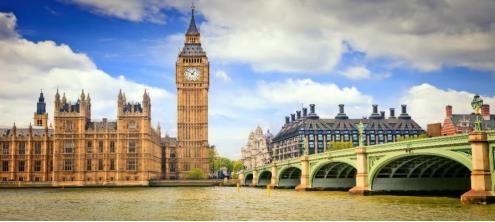
The cabinet system is implemented. The monarch appoints the leader of the party with the majority of seats in parliament as prime minister and forms a government responsible to parliament. The king or queen appoints the leader of the party with the majority of seats in parliament as prime minister and forms a government responsible to parliament. In May 2015, the British Parliament held a general election, formed a single government of the Conservative Party, and David Cameron was re-elected as Prime Minister. In June 2016, Cameron announced he would step down as prime minister after the UK voted to leave the EU by 51.9 percent in a referendum on its relationship with the EU and decided to leave the bloc after 43 years. In July, Theresa May took over as the new leader of the Conservative Party, becoming only the second female prime minister in British history after Margaret Thatcher. Since taking office, Theresa May has stressed the need to promote social justice, safeguard national unity and promote economic growth. On June 8, 2017, the Conservative Party pushed for an early general election to better negotiate Brexit with the European Union. The results gave the Conservatives 318 seats, falling short of a parliamentary majority and forcing them to form a coalition government with Northern Ireland's Democratic Unionist Party, which holds 10 seats. Due to take off the negotiations, take off the agreement have been a parliamentary vote against, Teresa mei in June 7, 2019, formally stepped down as the ruling party, the conservative leader, on July 24, Boris Johnson took over as Theresa may, as Britain's new prime minister, on December 12, the conservative landslide in the early election again. On 13 February 2020, Johnson carried out a major cabinet reshuffle, with the resignation of former Chancellor of the Exchequer Sajid Javid and the departure of five ministers, including Northern Ireland Secretary Julian Smith.
It is divided into four parts: England, Wales, Scotland and Northern Ireland. England is divided into nine regions, including London, 56 unitary authorities, 201 non-metropolitan areas and 36 metropolitan authorities. Scotland has 32 districts, Wales 22 districts and Northern Ireland 11 municipalities and counties. The central government is responsible for foreign affairs, defence and national security, overall economic and monetary policy, employment policy and social care, while the Scottish and Welsh assemblies and their administrations are responsible for local matters.
The capital, also known as Greater London, consists of 32 separate oughs, the London Boroughs and the City of London.
There are three different legal systems: common law in England and Wales, civil law in Scotland, and legal system similar to England in Northern Ireland. The judiciary is divided into two systems: civil courts and criminal courts. The civil courts in England and Wales are divided into the county courts, the high court, the civil division of the court of appeal, and the Supreme Court. Criminal trial organs are divided into local courts, criminal courts, criminal divisions of appeals courts and supreme courts. The Supreme Court is the final appellate body in all civil cases in the United Kingdom and in all criminal cases in England, Wales and Northern Ireland. The High Court of Scotland is the final appellate body for all criminal cases in Scotland.
In 1986 the Crown Prosecution Service (CPS) was set up to handle all criminal prosecutions brought by the police forces in England and Wales. The Attorney-General and the Solicitor General are the principal legal advisers to the British Government. The current attorney general, Suella Braverman.
The party system has been an important part of British constitutionalism since the 18th century. The main political parties are:
(1) Conservative Party: The largest Party in Parliament. Current leader Boris Johnson, elected in July 2019.
(2) Labour Party: The second largest Party in Parliament.
Other parties in the UK are: Scottish National Party, Liberal Democrat Party, Plaid Cymru, Green Party, Northern Ireland parties such as: The Ulster Unionist Party, the Democratic Unionist Party, the Social Democratic and Labour Party, Sinn Fein Letter), etc.
[important festivals] New Year's day: January 1; St. Valentine's Day: February 14; Easter: the first Sunday of the vernal equinox, around March 21; The Queen's Official Birthday is closed on June 10 or the Saturday before; Christmas Day: December 25; Halloween: October 31.
The United Kingdom is divided into England, Wales, Scotland and Northern Ireland. England is divided into 43 counties. Scotland is divided into 32 boroughs, including three special jurisdictions. Wales is divided into 22 boroughs. Northern Ireland is divided into 26 districts.
The Scottish and Welsh Assemblies and their executive have overall responsibility for local affairs, while the central government controls foreign affairs, defence, macroeconomic and monetary policy, employment policy and social security. January 10, 2020, Northern Ireland's Democratic Unionist Party and Sinn Fein reached an agreement to form a joint Northern Ireland Home Rule Government.
The main mineral resources in Britain are coal, iron, oil and gas. Total reserves of hard coal are 170 billion tons.
Iron reserves are about 3.8 billion tons. There are tin mines on the southwestern Cornwall Peninsula. There are large deposits of stone salt in Cheshire and Durham. Staffordshire has good clay. The Cornwall Peninsula produces white clay. The dolomite is mineable on the eastern slopes of the Pennine Mountains. Quartz deposits lie near the Hildley Hills in south-west Lancashire. On the UK North Sea Continental Shelf, oil reserves range from 1 to 4 billion tons and natural gas reserves range from 860 to 2,585 billion cubic meters. Britain has 3.19 million hectares of forest, or 13 percent of the country's land area. The main mineral resources in Britain are coal, iron, oil and gas. Total reserves of hard coal are 170 billion tons. There are large deposits of stone salt in Cheshire and Durham. Staffordshire has good clay. The Cornwall Peninsula produces white clay. The dolomite is mineable on the eastern slopes of the Pennine Mountains. Quartz deposits lie near the Hildley Hills in south-west Lancashire. Oil reserves on the UK North Sea continental shelf range from 1 billion tons to 4 billion tons. Natural gas reserves range from 860 to 2.585 billion cubic meters.
[Economy] With strong economic strength and favorable investment conditions, the UK occupies a pivotal position in the world economy. According to IMF data, the UK's GDP in 2019 is about 2.74 trillion US dollars, making it the sixth largest economy in the world. After 2013, the UK economy gradually shrugged off the impact of the 2008 financial crisis, with economic growth of more than 2%. The British economy gradually out of the shadow of the financial crisis, began a strong recovery. The UK economy continues to slow in the wake of the Brexit vote.
UK Economy 2015-2019 (in current GBP)
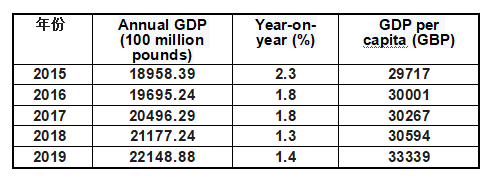
Source: Office for National Statistics
Since 2016, the UK economy has slowed down due to the uncertainty over Brexit and the increasing downward pressure on the world economy. In 2019, the UK economy grew by 1.4%. On the whole, the UK economy has maintained a healthy and stable development in recent years, showing strong resilience. Due to the current COVID-19 outbreak, the UK's economic growth rate has slowed sharply in the short term and uncertainty has increased, but the long-term development foundation is still solid.
The UK is the fifth largest economy in the world and the second largest in Europe. The private sector is the mainstay of the British economy, accounting for over 90 percent of the GDP. The service sector accounts for over three quarters of the GDP and the manufacturing sector accounts for about one tenth. In 2019, GDP was £2.09 trillion, up 1.4% year on year, with per capita GDP of £32,700, inflation rate of 1.7% and unemployment rate of 3.8%. The government deficit as a percentage of GDP will be 2.1 percent.
Due to the COVID-19 outbreak, the UK's GDP shrank by 2% in the first quarter of 2020, and by 20% in April. In response to the epidemic, the British government and central bank have continuously cut the benchmark interest rate, expanded the scale of quantitative easing, provided loan facilities, and introduced tax cuts and employment assistance measures, which have played a certain role. The UK economy has shown signs of recovery since May, when GDP grew 1.8 percent month-on-month, the first positive growth since March.
As an important trading entity, economic power and financial center, the British economy is also one of the world's richest, most economically developed countries with the highest standard of living. Over the past three decades, the government has drastically reduced state assets and slowed the development of social welfare programs. British agriculture is highly concentrated, highly mechanized, and highly efficient: 1% of the working population meets about 60% of the food needs. Britain has huge reserves of coal, gas and oil; Primary energy production in Britain accounts for around 10% of GDP, very high for an industrialised country. The service industry, especially the banking, financial, shipping, insurance and business service industry, accounts for the largest proportion of GDP and is a world leader. London, the capital, is one of the world's leading financial, shipping and service centers. Although Britain is still Europe's biggest producer of arms, oil products, computers, televisions and mobile phones, industry is declining in importance.
[Industry] Mining, metallurgy, chemical industry, machinery, electronics, electronic instruments, automobile, aviation, food, beverage, tobacco, light textile, paper making, printing, publishing, construction, etc. Biopharmaceuticals, aviation and defence are the focus of UK industrial research and development, and are among the UK's most innovative and competitive sectors. In Britain, as in many developed countries, manufacturing began to shrink in the 1980s as the service sector grew, a trend exacerbated by two recessions in the 1980s and early 1990s. Britain's textile sector was the worst off, but electrical and optical equipment, man-made fibres and chemicals, particularly pharmaceuticals, remained strong.
Agriculture accounts for less than 1% of Britain's gross domestic product, employs about 450,000 people, or less than 2% of the total employment, lower than in other major industrial countries. Agricultural land accounts for 70 percent of the country's land area, most of which is pasture and pasture, and only a quarter of which is used for farming. The agricultural population owns 70 hectares per person. Britain is one of the biggest fishing nations in Europe. The majority of British agricultural production is made up of animal husbandry, followed by planting. From the value of output, animal husbandry accounted for about 2/3, planting industry accounted for only 1/5. The main farming industries in Britain are cereals, horticultural crops, tubers and forage crops. The main crops are barley, wheat, potato, rape and sugar beet; Nearly one-tenth of the rest is horticulture, which includes vegetables, fruits and flowers. The livestock industry in Britain developed from the enclosure movement in the 16th century. Sheep farming was initially developed to provide raw materials for the domestic textile industry. Later, with the increase of the urban population, the production of meat, milk and eggs developed. The UK has one of the largest fisheries in the EU, accounting for a quarter of the main species caught in the EU. Britain has a low forest coverage rate, only 8%, and more than 90% of its timber needs to be imported.
The UK is a founding member of the World Trade Organisation (WTO), as well as a member of the EU and G20. On March 29, 2017, the United Kingdom officially started the legal process to leave the European Union. On January 31, 2020, the UK officially left the EU, and the transition period began on February 1, 2020 and ended on December 31. The two sides hope to reach an agreement on trade and security cooperation before the end of the transition period.
[Foreign Trade] The UK has always been a trading nation. It is a major force in the world that opposes trade protection and supports free trade. Emphasis on free trade, the main trade objects are the European Union, the United States, Japan and China. Britain trades with more than 80 countries and regions around the world. The main export products are: petroleum and related products, chemical products (including pharmaceutical products), tobacco, beverages, machinery and equipment, etc. The EU is Britain's largest trading partner. According to data released by the Office for National Statistics and the Department of International Trade, the total value of UK imports and exports (including goods and services) in 2019 was 1.42 trillion pounds, up 6% year on year. Exports accounted for 698.6 billion pounds, up 6.4% year on year; Imports were 724.5 billion pounds, up 5.6% year on year; The trade deficit was 25.9 billion pounds.
[Trading partners] By country (region), the percentage of UK vs US, Germany, Netherlands, France and Ireland in 2018; Imports from Germany, the United States, the Netherlands, China and France were 92.39 billion US dollars, 63.60 billion US dollars, 55.49 billion US dollars, 53.76 billion US dollars and 38.10 billion US dollars respectively, accounting for 14.2%, 9.8%, 8.5%, 8.2% and 5.8% of the total imports of the United Kingdom respectively. Increased by 3.3 percent, 6.8 percent, 8.4 percent, 3.6 percent and 3.8 percent, respectively. The major sources of the UK's trade deficit are Germany, China and Norway. In 2018, the deficit was $44.74 billion, $25.43 billion and $21.28 billion respectively, with Germany increasing by 10.8%, while China and the Netherlands decreased by 16.5% and 11.1% respectively. The trade surplus mainly came from Switzerland and Ireland, with Switzerland having a surplus of US $19.78 billion in 2018, up 101.0 percent, while Ireland had a surplus of US $9.41 billion, up 46.1 percent.
In 2019, the UK's top 10 export markets for goods are: the US (15.7%), Germany (9.9%), China (6.9%), France (6.6%), the Netherlands (6.6%), Ireland (5.8%), Belgium (3.5%), Switzerland (3.2%), Spain (2.9%) and Italy (2.7%); The top 10 sources of imports were Germany (12.9%), China (9.3%), the United States (9.3%), the Netherlands (8.4%), France (6.1%), Belgium (5.1%), Italy (3.9%), Spain (3.4%), Norway (3.2%) and Ireland (2.7%).
In 2019, the top 10 major UK exports were cars (£31.7 billion, or 8.5%), mechanical engines (£28.2 billion, or 7.6%), pharmaceutical products (£23.3 billion, or 6.2%), crude oil (£20.9 billion, or 5.6%), aircraft (£14.4 billion), 3.9%), precious metals (£14.1bn, 3.8%), refined oil (£12.6bn, 3.4%), scientific instruments (£10.1bn, 2.7%), art (£9.8bn, 2.6%), organic chemicals (£9.7bn, 2.6%); The top 10 imports included cars (£33.8bn, 6.7%), pharmaceutical products (£23.7bn, 4.7%), refined oil (£21.7bn, 4.3%), mechanical engines (£20.8bn, 4.1%), clothing (£20.7bn, 4.1 per cent), telecommunications and acoustic components (£19.6bn, 3.9 per cent), crude oil (£19.4bn, 3.9 per cent), electrical appliances (£15.9bn, 3.2 per cent), precious metals (£15.7bn, 3.1 per cent), other manufactured goods (£13.6bn, 2.7 per cent).
The service sector is the dominant sector of the British economy. Services accounted for 73 per cent of GDP in 2010; They employ 79 per cent of the UK workforce. In recent years, the overall structure of the British economy has seen steady growth in output and employment in services, while output and employment in manufacturing have declined correspondingly. With the emergence of new industries such as IT and leisure services, the types of service business activities are increasing day by day. Each service sector in the UK has a different regulatory and regulatory body responsible for trade promotion related matters in that sector. Trade in services is regulated through industry organizations. The British government-funded institutions or industry organizations coordinate and manage the trade in services, covering all fields and links, which forms a sound and orderly management chain for the development of the trade in services.
In 2019, the UK exported 326.2 billion pounds of service trade and imported 222.3 billion pounds of service trade, among which the top five service categories of UK exported were other business services (112.6 billion pounds, 34.5%), financial services (62.9 billion pounds, 19.3%), tourism services (39.1 billion pounds), 12 per cent), transport services (£30.9bn, 9.5 per cent), telecommunications computers and information services (£23.3bn, 7.1 per cent); The top five categories of services imported to the UK are other business services (£80.9bn, 36.4%), tourism services (£55.7bn, 25.1%), transport services (£25.7bn, 11.6%), financial services (£19.6bn, 8.8%) and intellectual property services (£13.3bn, 6%). Financial services accounted for 41.7 per cent of the £103.9bn surplus in services. Britain's main service export markets are the United States, Germany, the Netherlands, France, Ireland, etc., and its main service import sources are the United States, Spain, France, Germany, Ireland, etc.
The UK is an important trading partner of China. The UK is China's second largest trading partner in Europe, the largest destination of direct investment and the second largest source of investment. China is the UK's second largest non-EU trading partner after the US. In 2019, China-UK bilateral trade reached US $86.27 billion, up 7.3% year on year. Due to the COVID-19 epidemic, the bilateral trade volume between China and the UK in the first half of 2020 was US $35.91 billion, down by 10.0% year on year. Among them, China's exports amounted to 26.40 billion US dollars, down 7.2% year on year; Imports reached 9.51 billion US dollars, down 16.9% year on year.
In recent years, economic and trade cooperation between China and the UK has been deepening. Since the Brexit referendum in 2016, trade in goods between China and the UK has maintained steady growth, with bilateral trade in goods reaching $74.3 billion, $79 billion and $80.4 billion respectively from 2016 to 2018. In 2019, trade in goods between China and the UK was US $86.3 billion, up 7.3% year on year, making the UK China's third largest trading partner in Europe in goods. In 2018-19, China was the UK's third largest export market and second largest source of imports of goods.
China-UK trade in goods from 2015 to 2019

Source: China General Administration of Customs
According to Chinese customs statistics, in 2019, trade in goods between China and the UK was US $86.3 billion, up 7.3% year on year. China's export to the UK was US $62.4 billion, up 10.4% year on year. China imported US $23.9 billion from the UK, up 0.1% year on year.
According to Chinese customs statistics, in recent years, China's exports to the UK mainly include: electrical machinery, audio and video equipment, mechanical appliances and parts, furniture, bedding, lamps and lanterns, clothing, toys, games and sporting goods, shoes and boots, plastics and products, steel products, bags and suitcases, etc. China's imports from the UK mainly include vehicles and their accessories, mineral fuels, machinery and appliances, medical equipment, pharmaceuticals, electrical machinery and appliances, wood pulp, waste paper and pulp, copper and its products, plastics and its products, etc.
Meanwhile, China-UK trade in services has maintained a good momentum of development. According to the Office for Statistics of the UK, in 2018, the UK's total trade in services with China was 6.3 billion pounds, accounting for 2.2% of the UK's total trade in services with non-EU countries, of which 4.6 billion pounds was exported to China and 1.7 billion pounds was imported from China. Trade in services between China and the UK is mainly in transport, tourism, other business services, finance, insurance, communications, culture and entertainment. In recent years, China-UK cooperation projects on clean energy mechanism and environmental protection have proliferated and become new highlights. Service outsourcing, creative industries and design have also become new areas of cooperation.
According to the statistics of the UK's H.M. Revenue and Customs, the two-way trade in goods between the UK and China in 2019 was $95.68 billion, an increase of 4.2%. Of this, UK exports to China were US $30.18 billion, up 6.5%, accounting for 6.4% of the UK's total exports, up 0.7 percentage points. The UK imported US $65.05 billion from China, an increase of 3.2%, accounting for 9.5% of its total imports, an increase of 0.1 percentage points. Britain's trade deficit stood at $35.32 billion, up 0.5%. As of December, China was the UK's fifth largest export market and third largest source of imports. The top four categories of UK exports to China are precious metals and products, minerals, transport equipment and mechanical and electrical products. In 2019, the UK exported US $8.78 billion, US $5.40 billion, US $4.14 billion and US $3.34 billion respectively, accounting for 29.1%, 17.9%, 13.7% and 11.1% of its total exports to China. Transportation equipment and mechanical and electrical products decreased by 26.0 percent and 2.9 percent, respectively, while precious metals and products and minerals increased by 39.5 percent and 8.8 percent.
The top three categories of goods imported by the UK from China are mechanical and electrical products, furniture and toys, textiles and raw materials. In 2019, the UK imported US $29.03 billion, US $8.64 billion and US $6.42 billion, accounting for 44.3%, 13.2% and 9.8% of its total imports from China. Electromechanical products and furniture and toys increased by 5.6% and 3.8% respectively. Textiles and raw materials fell 4.7 percent. Base metals and products, plastics, rubber and chemicals are also important imports from China. China is the largest source of imports of mechanical and electrical products, shoes, shoes, umbrella and leather products in the UK, accounting for 19.9% and 19.7% of the UK import market.
British English culture 】 【 British flag shows horizontal rectangles, is long and wide ratio is 2:1, as the "m" word flag by deep blue color and red, white "m" word composition, the red flag with white border is cross represent England's patron saint st. George, the white cross cross for Scotland guard sacred Andrew, Red Cross cross on behalf of the Irish patron saint st. Patrick.
The central design of the British National Emblem is a coat of arms. On the face of the shield, the upper left corner and the lower right corner are three golden lions on a red background, symbolizing England. The upper right corner is a golden lion on a gold background, symbolizing Scotland.
British music is made up of four main ethnic groups: England, Scotland, Wales and Northern Ireland, each with their own distinctive folk music, as well as a mix of music from the Isle of Man, the Channel Islands of Cornwall and Jamaica. The traditional music of India, Britain and immigrants all over the world. In classical music, famous orchestras from the UK include the BBC Symphony Orchestra, the Royal Philharmonic Orchestra, the Philharmonic Orchestra, the London Symphony Orchestra and so on. In popular music, there are TheKinks, The Queen, and so on.
The British habit of drinking tea for breakfast is actually a long-standing British tradition. English breakfast tea is a black tea blend, usually rich and rich, that goes well with milk and sugar. It is the most common type of tea in the UK. The English tradition of afternoon tea was started during the Victorian era by Lady Anna, Duchess of Bedford. At that time, lunch started early and dinner was usually not eaten until 9 PM. The Duchess, bored and even hungry in the afternoons, asked the maid to prepare tea, bread, butter, and cake, and brought it to his room. Afternoon tea soon became fashionable. The Duchess also began to invite his friends to tea.
Britain implements the compulsory education system between the ages of 5 and 16. Education spending was 4.9% of GDP in the 1998/1999 fiscal year, and public school students were free of tuition fees. Private schools have better teachers and teaching facilities, but they charge higher fees and students are the children of wealthy families. Famous institutions of higher learning are Oxford University, Cambridge University, Imperial College London, London School of Economics and Political Science, University of Edinburgh and so on.
Freedom of religion is enjoyed by everyone in Britain, and as a result many different faiths flourish in the country's heartlands. A great variety of religions and countless denominations can be found represented in Britain. The vast majority of people in Britain are Christian, although church-going numbers are currently low, at around 1.1m a week. Muslims are the largest non-Christian group in Britain. In addition, Buddhism, Hinduism, Sikhs and Judaism also have large and growing numbers of followers.
The official language of the United Kingdom is English, along with Welsh, Irish Gaelic and Ulster Scots. Scottish Gaelic (Scottish Gaelic), Cornish (Cornish), the official languages of the United Kingdom. The English language of England is English, and English originated in western Europe. The English of that time was called Old English. After it rose to the top, Henry IV succeeded to the throne in 1399. He was the first English king to speak English as his mother tongue.
The British national costume is very characteristic, first of all is the hat, among which the most prominent is the British gentleman's bowlerhat -- "bowlerhat". It is a kind of hard fodder hat, usually black. The second is the Scottish "kilt", which is a kind of tartan material made from the waist to the knees of the skirt, it line in the Middle Ages, is a man's special skirt, today's Scottish men do not wear in daily life, but meet the traditional festival occasions. The man will be reactivated. Followed by the British work of various traditional clothing and apparel, including: court judges wear black robes, wearing a wig, when the church pastor wearing robes, successive session of congress, the queen's long white dress dress wearing a crown, meanwhile, sitting in the front row of "judicial aristocracy" wear black wig, "religious aristocracy" the lapel red), Then there were the bright short coats, yellow girdles, and tall black leather hats worn by the royal guards. The black cap and black clothes of the Tower Guard, the black trousers and black boots of the Knight Guards.
British residents' architecture and urban planning are closely related to The Times. Due to the long war in Britain, houses are mainly for defense. Houses are closely separated from each other, forming only narrow roads and portraits with ramps, which are not conducive to the expansion of the large corps. The invaders engaged in street fighting. In addition, the weather is changeable and the climate is cold. English buildings have few Windows and are equipped with fireplaces.
The clock tower attached to the House of Parliament of the United Kingdom was built in 1859 and installed on the 95-meter-high clock tower on the east side of the North House of Parliament at Westminster Bridge. The round clock dial on the four sides of the clock tower, with a diameter of 6.7 meters, is a traditional landmark of London.
Buckingham Palace, the royal palace of England. Built in the City of Westminster, west of James Park in London, it got its name in 1703 for the Duke of Buckingham, originally known as Buckingham House, meaning "the home of others".
Bus sign in the UK: The sign at the top of the stop sign is a red circle with a bar in the middle. This is the sign of the bus. The name of the station is written in the gray area below the sign. Double decker buses are also a specialty of London. In order to maintain the traditional character, the government has mandated that all bus companies use the color red, so the only buses you can see in the UK are red buses. The traditional black taxi is also a sight in Britain. The black taxi is an icon of London and costs two pounds per kilometre. London's taxi is a special car company production of special models, models wide, sitting five people do not feel crowded. London subway is one of the world's oldest subway, is the birthplace of the world's subway, so far, London subway in the total mileage and the number of stations in the world's first, London is therefore known as the "built on the subway city". London Underground now has 12 lines crisscrossing, a total length of more than 400 kilometers, more than 270 provincial stations, any place in the city, people can walk within 10 minutes to reach the subway stations in all directions. The subway in your class is connected with the railway station, port, airport and other places, which not only saves time, but also reduces the traffic pressure on the ground. It really feels very convenient.
[Famous Companies and Economic Organizations] :
BP (BP) : Oil refining.
HSBC Holdings: mainly engaged in financial services.
Tesco (TESCO) : mainly food and drugs business.
Prudential (PRU) : Insurance investments.
Vodafone (VOD) : Telecoms.
Unilever (Unilever) : British-Dutch conglomerate dealing mainly in food products and lotions.
Barclays (BCS) : mainly financial business.
Lloyds Banking Group: Lloyds Banking Group: Lloyds Banking Group: Lloyds Banking Group: Lloyds Banking Group.
GlaxoSmithKline (GSK) : Pharmaceuticals.
Rio Tinto Group (Rio Tinto Group) : Anglo-Australian joint company mainly engaged in mining.
Royal Bank of Scotland Group: Financial.
British telecommunications company (BT) : mainly engaged in telecommunications business.
Astra Zeneca (AZN, Fortune 500) : A pharmaceutical company.
Standard Chartered Group: Financial.
Rolls-Royce Holdings (Rolls-Royce Holdings) specializes in the design, manufacture and distribution of motor vehicles and aircraft engines.
China-Britain Business Council: The earliest predecessor was the "48 Group" established in 1953 by a group of British SMEs who broke the western trade embargo against China. Later, the British government set up a semi-official "China-Britain Business Association". The two organisations merged in 1991 to form the China-Britain Business 48 Group and in 1998 the name was changed to the China-Britain Business Council. Supported and guided by the British government, the group now has nearly 300 core members, most of whom are enterprises, banks and trading companies that have been engaged in economic and trade cooperation with China for a long time. They are mainly committed to promoting bilateral trade and economic and technological cooperation between China and the UK.
Britain's key industries, including oil refining, finance, insurance, pharmaceuticals, aviation and mining, are highly competitive in the world. In 2019, there were 16 UK companies on the Fortune Global 500 list.
List of UK companies that will be among the top 500 companies in the world by 2020
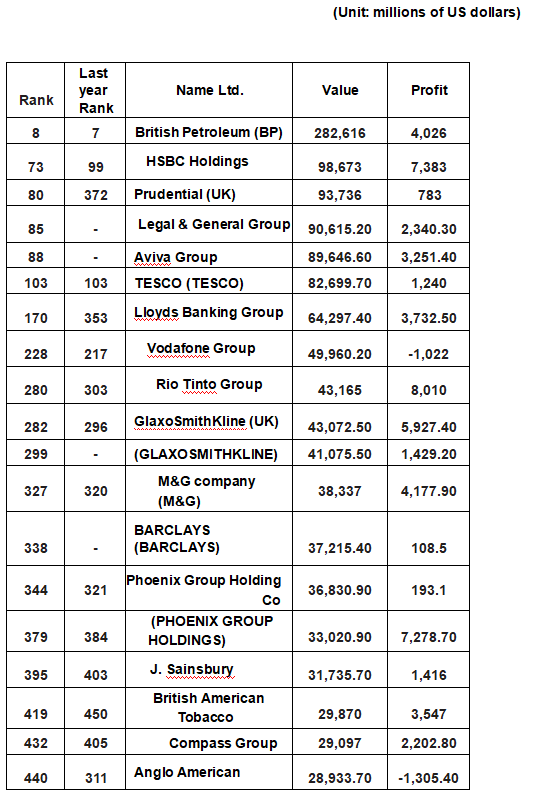

Source: Fortune magazine
Among them, the world famous enterprises are:
Unilever Plc (NYSE:UL, NYSE:UN, LSE:ULVR, Euronext:UNA, TTSE:UCL) was founded in 1885, headquartered in London, UK, with 149,867 full-time employees. It is the world's second largest FMCG company after Procter & Gamble, with major operations in the Americas, Europe, Asia, Australia, Africa, the Middle East, Turkey, Russia, Ukraine and Belarus.
HSBC Holdings Limited is the holding company of HSBC Group, headquartered in London, United Kingdom, which is the largest European bank. HSBC was officially established in 1991, but its subsidiary HSBC has a history of more than 150 years. HSBC is one of the largest banking and financial services institutions in the world, with a market capitalization of $198 billion as of May 20, 2018. HSBC's business roots are deep. It has an international network in six regions around the world, with some 4,000 offices in 71 countries and territories in Europe, Hong Kong, Asia Pacific, the Middle East, North America and Latin America, and more than 50 million financial services customers.
BP P.L.C. (NYSE:BP) was founded in 1889 and is headquartered in London, United Kingdom. With 67,600 full-time employees, BP is one of the world's largest oil and petrochemical conglomerates.
BP PLC (formerly known as British Petroleum) is one of the world's largest private oil companies (one of the seven sisters of international oil) and one of the world's top ten private enterprise groups, with a turnover of $388.285 billion in 2012. The Company was founded as Anglo-Persian Oil Company in 1908 and renamed as British Petroleum in 1954. The company integrates oil exploration, gas exploration, refining, oil storage, oil sales, retail and other business areas. In 2001, BP ceased to be an abbreviation of British Petroleum and became the company's official name. In advertising, the company sometimes uses "Beyond Petroleum" to promote its business.
AstraZeneca PLC (LSE:AZN, OMX:AZN, NYSE:AZN), headquartered in London, United Kingdom, employs 70,600 people worldwide. Astra AB is a major Anglo-Swiss pharmaceutical joint venture formed by the merger of Astra AB of Sweden and Zeneca Group PLC of the United Kingdom on 6 April 1999. AstraZeneca develops, manufactures and markets medicines for the treatment of digestive, cardiovascular, oncology, central nervous and respiratory diseases and for anesthesia.
BHP Billiton PLC (NYSE:BBL, LSE:BLT, ASX:BHP, JSE:BIBLT) was founded in 1996 (dating back to 1860 during the Opium War), formerly known as Billiton PLC. BHP Billiton Group is a subsidiary of BHP Billiton Group, headquartered in London, UK, with 80,000 full-time employees (2016). It is one of the world's three major iron ore giants, together with Rio Tinto and Vale, and one of the world's largest mining companies. It owns the world's largest chromium ore, manganese ore and ore alloy, and is the largest aluminum and nickel producer.
British American Tobacco P.L.C. BAT (AMEX:BTI, LSE:BATS, JSE:BTI) was founded in 1902 with 605,593 full-time employees. Headquartered in London, UK, it is the second largest tobacco company in the world after Altria (and its sister company Philip Morris).
British American Tobacco is one of the world's top three Tobacco companies. Its main products include cigarettes, smokeless snuff and cigars. Its four major brands are Dunhill, Kent, Lucky Strike and Pall Mall. It also owns other internationally renowned and local brands, including: Rothmans, Vogue, Viceroy, Kool, Peter Stuyvesant, Craven A, Benson & Hedges, John Player Gold Leaf, State Express 555 (555), Shuang Xi (Double Happiness), etc.
Diageo PLC (NYSE:DEO, LSE:DGE, ISEQ:GUI) was founded in 1886, formerly known as Guinness PLC, changed to its current name in February 1998. Headquartered in London, UK, Diageo is a manufacturer of alcoholic products with 31,485 full-time employees. The company includes liquor, beer, wine and other alcoholic beverages, including Smirnoff Vodka, the world's No. 1 vodka. Smino), the world's first Scotch whisky JohnnieWalker (JohnnieWalker), the world's first liqueur Baileys (Baileys), the world's first stout Guinness (Guinness).
What's hot in the news
- The UK NFU urges the government to promote the development of environmentally friendly food globally
news.foodmate.net/2020/01/546741.html
(2) The US lifted 25% tariffs on some seafood imports from the UK
news.foodmate.net/2020/01/546741.html
(2) the waitrose released the 2019-2020 food and beverage report at https://www.cngold.com.cn/20191111d1703n340565512.html
- countries. Human geography
The United Kingdom is located in Western Europe, is a confederation of England, Scotland, Wales and Northern Ireland in the northeast of the island of Ireland on the island of Great Britain.
Britain is surrounded by the North Sea, the English Channel, the Celtic Sea, the Irish Sea and the Atlantic Ocean. It faces the North Sea on the east and faces Belgium, Holland, Germany, Denmark and Norway. Ireland to the west, across the Atlantic Ocean and the United States, Canada far opposite; Iceland can be reached across the Atlantic in the north; France is 33 kilometers south across the English Channel. It covers an area of 244,100 square kilometers (including inland waters). Of these, England covers 130,400 sq km, Scotland 78,800 sq km, Wales 20,800 sq km and Northern Ireland 14,100 sq km.
The UK is in the world zero time zone, using Greenwich Mean Time, and its time difference with China is eight hours. In summer, the British go to daylight saving time, when the local time in London is 7 hours behind China. Britain is an island nation consisting of Great Britain and many islands in and around the northeast of Ireland. East of the North Sea to Belgium, the Netherlands, Germany, Denmark and Norway and other countries; Neighbors Ireland, across the Atlantic Ocean and the United States, Canada far opposite; Iceland can be reached across the Atlantic in the north; It's 33 kilometers south across the English Channel to France. England has a total area of 130,000 square kilometers, making up most of the island of Great Britain. The region is divided from west to east into four parts: the Midland Plain with the Severn Valley as the center; An elevation of about 200 meters above sea level; London Basin; The Weald Hills. Wales is a rugged, mountainous country with an area of more than 20,000 square kilometers. One quarter of the land in Wales is classified as national parks and nature reserves. Scotland and the small islands around it cover a total area of 78,000 square kilometres. The whole territory is a mountainous area, only the middle of the relatively flat. Northern Ireland is 14,000 square kilometers across the Irish Sea from the island of Great Britain. Northern Ireland area lake more, the UK's first big lake - Lake Ne lying wave meantime. The lake is a plain. Climate is Marine temperate broad-leaved forest climate. The average temperature of the hottest day (July) is 19 ~ 25℃, and the average temperature of the coldest day (January) is 4 ~ 7℃. England has a lower potential, with an average annual precipitation of 830 mm. The western and northern mountainous areas have more rainfall, up to 4,000 mm. The climate of this island country is mild, but the weather is changeable. The English often say, "Abroad there is climate; in England there is weather", to illustrate the unpredictability of the weather here. Indeed, it is not uncommon to see sunny, cloudy and rainy spells in a single day. The weather makes one extra cautious. The sight of an Englishman setting out on a sunny morning wearing a raincoat and an umbrella may make a foreigner laugh, but he will soon regret "feeling funny". The changeable weather also provides people with a constant topic of conversation. In Britain even the most reticent people like to talk about the weather.
Britain is the first western country to implement a welfare system, such as public health care and social insurance. British people pay attention to the quality of life, the pursuit of spiritual enjoyment. Dress formally on important occasions, and pursue simple and comfortable clothes at ordinary times. The diet is simple in style, but it focuses on nutrition. Because of the climate, the British are particularly fond of the sun, like sunbathing. Usually like their own hands to do housework and gardening, love sports, also like to go out on vacation. In addition, British people are very fond of cultural activities, such as reading books and periodicals, writing, going to concerts,
(1) British Geography and Cuisine.
https://v.qq.com/x/page/j3023s3jimr.html
(2) What you want to know about British culture
https://www.bilibili.com/video/BV15t411T7zs?share_source=copy_web
(3) Take you to know the afternoon tea in England
https://www.bilibili.com/video/BV16o4y117EM?share_source=copy_web
- London street food, feel the street culture of https://v.qq.com/x/page/z30555h6t17.html
4.he latest news
(1) the British economist: Chilean wine has become a favorite news.foodmate.
net/2021/01/582291.html Chinese consumers
- the British AminoA new seed treatment STAART, containing many kinds of amino acids and natural plant hormones news.foodmate.
net/2020/11/578492.html
(3) The United Kingdom and Iceland signed a fisheries agreement
www.seafare.com.cn/seafoodnews/6105-2020-11-24-8
(4) The Brexit negotiation process slowed down due to the fishery agreement
www.seafare.com.cn/seafoodnews/5596-2020-6-24-5
(5) The UK promotes the agricultural payment bill to ensure sustainable development
news.foodmate.net/2020/01/546950.html
(6) Increasing productivity and protecting the environment are at the heart of the UK's future agriculture plan
news.foodmate.net/2020/01/546744.html
(7) The UK's NFU urges the government to promote the development of environmentally friendly food globally
news.foodmate.net/2020/01/546741.html
(8) The UK reached a deal with Iceland and Norway to ensure it would not be affected by Brexit
www.seafare.com.cn/seafoodnews/4958-2019-3-29-10
(9) Britain and China signed a seed potato import agreement
news.foodmate.net/2018/09/482979.html
(10) The UK's FSA has published its meat industry emergency plan for coronavirus
news.foodmate.net/2020/04/557420.html
- Country. Food introduction
Agriculture The geographical type of agriculture in Britain is dairy farming. Britain has a temperate maritime climate, temperate and rainy all the year round, so the most typical agricultural area type is dairy farming. Advantageous conditions for the development of British dairy industry: 1, natural conditions: mild and humid climate, conducive to the growth of succulent grasses. 2. Socio-economic conditions: Dense population distribution, high level of urbanization, dense cities and large market demand; Developed economy and science and technology, high degree of intensive animal husbandry, excellent product quality. The main restraining factors for the development of British planting industry are high latitude, insufficient heat, more precipitation, and insufficient light. The UK's agriculture, animal husbandry and fisheries sector, which mainly includes animal husbandry, grain, horticulture and fishing, accounts for nearly two-thirds of the country's total food demand. Agriculture accounts for less than 1 per cent of gross domestic product in the UK, employing about 450,000 people and less than 2 per cent of total employment, lower than in any other major industrial country. Agricultural land accounts for 77 percent of the country's total area, most of which is pasture and pasture, and only a quarter of which is used for farming.
The UK is one of the fastest growing food and drink markets in the world. Driven by innovation in chemical and nanotechnology, the UK food and drink industry continues to innovate, particularly in high-tech packaging, health and convenience foods. According to the latest figures from the Food & Drink Federation (FDF), the UK Food and Drink industry is the largest manufacturing sector in the UK, larger than the UK car manufacturing and aerospace industries combined. The food and drink industry has an annual turnover of about 104bn pounds, accounts for 19% of the total manufacturing sector in the UK and employs about 450,000 people, or 14% of total employment. In 2019, it contributed about 31.1 billion pounds to the economy, and exports were 23.6 billion pounds. The top three export markets were Ireland, the United States and France.
- Frame: food standards
The food safety law 1990, https://www.legislation.gov.uk/ukpga/1990/16/contents
https://www.food.gov.uk/safety-hygiene/food-crime Food crime Food crime
acrylamide
Information on the risks of acrylamide and how to reduce the chances of being harmed by acrylamide. https://www.food.gov.uk/safety-hygiene/acrylamide
- policies and regulations
7.1 Regulations and policies on foreign trade
Britain's economic development is highly open to the outside world, so it pays special attention to and advocates the establishment of a multilateral open trade system, that is, the global free trade system. At present, the management of foreign trade in services and trade in goods in Britain is basically liberalized. Generally, the government does not interfere in the foreign economic and trade activities of companies.
As the EU has exclusive jurisdiction over the common trade policy, as a member of the EU, Britain's policies and regulations on foreign trade management must be consistent with the EU. The UK implements a single market within the EU, and the government generally has no restrictions on the import or export of enterprises from or to countries outside the EU.
On January 31, 2020, the United Kingdom officially left the European Union. During the transition period (31 January 2020 BBB 0 31 December 2020), the policies and regulations related to the EU will remain in force.
7.1.1 Trade authorities
Prime Minister Theresa May reshuffled her cabinet after Prime Minister David Cameron resigned following the 2016 Brexit vote, The new Department for International Trade (DIT), the Department for Business, Energy and Industrial Strategy (DIT) Energy& Industrial Strategy (BEIS) assumes the responsibilities of the former Department for Business, Innovation and Skills (BIS) for trade policy formulation, trade promotion, productivity, business relations, Energy, competition and consumer policy, company law and employment management. The Department of International Trade is responsible for formulating trade and investment policies, formulating a new post-Brexit trade policy framework and leading the negotiations on foreign trade and investment arrangements. We will promote the export of British products and services, attract overseas investors, encourage British companies to invest overseas, and formulate supporting policies and financial support measures. It consists of the General Department of Trade Policy, the General Department of International Trade and Investment, and the Export Finance Bureau. Business strategy, energy and industry is mainly responsible for develop the commercial and industrial strategy, scientific research and innovation policies to address climate change and clean energy policy and related policies, led by government departments and the relationship between market subjects, to ensure reliable, economic and clean energy supply, ensure that the leadership in the field of science and technology, research and development and innovation, the change of the climate. It has 41 subordinate agencies, including the Competition and Markets Authority, the Intellectual Property Office, the Insolvency Authority and the UK Space Agency.
The current Cabinet Secretary at the Department for International Trade is Elizabeth Truss, who took office in July 2019
(Elizabeth Truss). The cabinet minister for commerce, energy and industrial strategy is Alok Sharma, who took office in February 2020.
Her Majesty's Revenue and Customs (HMRC) collects and administers direct and indirect taxes and customs administration.
The UK Export Finance Agency (UKEF) provides financial support to British companies' exports and outbound investment, including Export insurance, bond insurance, seller's credit, direct lending and other support measures for British exporters. It also provides overseas investment insurance for outbound investment. A buyer's credit for the purchase of British goods and services.
7.1.2 Trade legal system
At present, the United Kingdom implements the EU Common Trade Policy in terms of the revision of tariff rates, conclusion of tariff and trade agreements, implementation of uniform trade liberalization measures, export policy and protection measures in accordance with Article 133 of the Treaty of the European Community. The Nice Treaty extended the scope of the common trade policy to services, intellectual property and investment.
Regulation of the Council (EEC) No. 2913/92 on the establishment of the European Union Customs Code (the Customs Code) and its implementation Regulation Commission Regulation (EEC) No. 2454/93 on the making of provisions for the implementation of Regulation (EEC) No. 2913/92, Unified provisions have been made on common customs tariffs (including catalogue of commodities, agreed tariff rates, preferential tariff rates and GSP), rules of origin and customs valuation.
On January 31, 2020, the United Kingdom officially left the European Union. During the transition period (31 January 2020 BBB 0 31 December 2020), the policies and regulations related to the EU will remain in force. Trade arrangements at the end of the transition period are subject to an agreement between the UK and the EU on UK-EU trading arrangements.
7.1.3 Relevant provisions on trade management
At present, the UK offers preferential tax rates to products from some non-EU countries that have signed trade agreements with the EU. Licensing control shall be applied to agricultural products, plants, endangered animals, furs, textiles, weapons, nuclear materials, specific wood and forestry products, products containing ozone-depleting substances, unprocessed diamonds, waste materials, etc. For the products of specific countries, the implementation of the EU tariff quota management.
[Export Control] The Export Control Joint Unit of the UK Department for International Trade is responsible for licensing the Export of military, nuclear and dual-use products. Products related to weapons, munitions, police and security equipment, certain chemicals, metals and engineering materials, nuclear and radioactive materials, machine tools, electronic components; Laser and optical products; Imaging, navigation and communications equipment, high specification computers, aerospace and maritime equipment, software and technology, etc. For details, please query website: www.gov.uk/government/organisations/export-control-organisation
7.1.4 Inspection and quarantine of import and export commodities
The inspection and quarantine of imported goods in the UK is controlled by the Department for Environment, Food and Rural Affairs (Defra), the UK Animal and Plant Health Agency (UKAnimal and Plant Health Agency) at the central level and by the local government and port Health authorities at the local level. The export of animals, animal products and embryos is subject to a health certificate for export issued by a veterinarian appointed by the Department for the Environment, Food and Rural Affairs.
7.1.5 Customs management rules and regulations
The UK imposes import duties on goods from outside the EU at the EU flat rate. In addition, a value-added tax (VAT) of 20% is levied on imported goods, which is calculated as (declared value + head freight + import duty) *20%. The VAT can be returned by the merchant after the goods are sold.

Source: HM Revenue and Customs
For information on tariff rates for all categories of products, call the HM Revenue and Customs service hotline 08450109000 (0044-2089290152 Outside the UK) or go to the website for monthly updates. Website: www.gov.uk/trade-tariff
- Exhibition Exhibition (Food)
(1) Speciality & Fine Food Fair 2020, London, UK
https://www.showguide.cn/zhanhui/speciality-finefoodfair.html
Speciality & Fine Food Fair
Duration: once a year
Exhibition scale: less than 10000
First held: 1999
Media promotion: ww.showguide.cn
Exhibition hall: Olympia Exhibition Centre, London, UK
Exhibition time: September 6-8, 2020
Exhibition industry: food show
Exhibition scale: professional exhibition
Exhibits: fruits and vegetables, health food, condiments, fruits and vegetables, food additives, fresh or frozen food, seafood, cream products, meat products, bread and baked goods, dairy products, snacks, beverages, food raw materials, snacks, etc. Public food technology, technical equipment, instruments, communications, information systems, hotel equipment, interior design, safety systems, health services, hotel consultants; Food machinery, refrigeration technology, packaging technology, retail technology, store technology, product display, etc.
Speciality & Fine Food Fair has attracted international exhibitors from 30 countries, including USA, Canada, Belgium, Colombia, Poland, New Zealand, Netherlands, Switzerland, Sweden, France and so on. At the food show, you can develop potential customers, meet new customers, marketing experts and distributors, achieve sales goals, introduce new products, broaden your business scope and share industry experience. The experience of the food show inspires awareness and embodies the spirit of learning and education, focusing on innovative activities by highlighting global trend analysis, and interacting face to face with leaders and older pioneers in the industry. The show attracts more food industry suppliers and buyers than any other event. Participating in this exhibition can have a more direct understanding of the development of products in the UK and the world as well as the specific market demand, which is conducive to improving the technical content of products, adjusting and improving the product structure, laying the foundation for high-quality products, and guiding the direction for improving and ensuring the normal export.
Market background: Britain is a highly developed capitalist country. One of the four largest economies in Europe, its citizens have a high standard of living and a good social security system. Britain has a temperate maritime climate. Britain is subject to the prevailing risk control system. It is mild and humid all the year round, with little change in the seasons. Temperate deciduous broad-leaved forest zone. Usually the highest temperature is not more than 32℃, the minimum temperature is not less than -10℃, the average temperature in January 4 ~ 7℃, July 13 ~ 17℃.
According to H.M. Evenue and Customs, in January 2017, the total value of goods imported and exported to the UK was $95.17 billion, a 16.0% increase over the same period last year. Exports amounted to 39.19 billion US dollars, up 10.2 percent; Imports reached 55.97 billion US dollars, up 20.4 percent. The trade deficit was US $16.78 billion, up 53.2 percent. As of January, China was the UK's seventh largest export market and fourth largest source of imports.
(2) IFE 2021, London International Food and Beverage Exhibition, UK
https://www.sohu.com/a/389644329_413659
Date: March 22-24, 2021
Venue: London Excel Convention Centre
Organizer: Beijing Huansheng World Trade International Exhibition Co., Ltd
The biennial IFE International Food and Drink Show is the largest food trade show in the UK and one of the top five food trade shows in the world. It is organized by the world famous UK FRESHRM Exhibition Co., Ltd. (Montgomerie Exhibition Group). Since its inception in 1979, it has become one of the most important meeting places for purchasers and decision makers in the world's food industry. Whether you're here to find a new buyer or to present a new product to a client, attending IFE will definitely provide you with the opportunity to meet your target customers face-to-face. IFE is the only global food and beverage event that focuses on showcasing new products and international decision makers to enhance their competitiveness by finding a variety of new and consumer-driven products. The IFE experience inspires awareness and embodies the spirit of learning and education, focusing on innovative activities through highlighting global trend analysis, and through face-to-face interaction with leaders and older pioneers in the industry. In 2013, 1,125 exhibitors participated and 21,442 visitors were attracted.
Scope of exhibits: bread and pastries, beer, fruit juice, cookies, service class, cheese and dairy products, children's food, spices, dessert, convenience food, canned food, local flavor food, seafood, fresh food, frozen food and ice cream, health food, raw materials, meat and poultry, non-alcoholic beverages, organic food and drinks, snacks and alcohol.
Market analysis: As an important trading entity, economic power and financial center, Britain is the fifth largest economic system in the world, and also one of the world's richest, most economically developed countries with the highest living standard. Over the past three decades, the government has drastically reduced state assets and slowed the development of social welfare programs. In the 18th century, the local wheat in Britain began to lose to the cheap wheat in North America, so it gave up planting a lot of wheat and imported a lot of grain from America for production. It gradually turned to dairy industry, which was more concentrated, highly mechanized and highly beneficial: 1% of the working population could meet about 60% of the food needs.
- Frame plate: food category
Meat and products: beef and mutton
Dairy products
The United Kingdom is located in the west of Europe, with the Atlantic Ocean on the south, west and north sides and the North Sea on the northeast. The climate is warm and humid (annual rainfall is 850-1,100 mm), and the natural conditions are very suitable for the growth of herbage. China's land area is 24 million hectares, of which 19 million hectares are for agricultural use, and the cultivated and natural grassland area is about 12 million hectares, equivalent to 2.4 times the area of crops, providing favorable conditions for the development of animal husbandry. The temperate Marine climate is characterized by: no severe cold in winter, no intense heat in summer, even precipitation throughout the year, no drought or flood disasters, suitable for the growth of herbage and the development of animal husbandry. The management level of grassland science and technology is high, and the guarantee degree of forage supply is very high. With the development of science and technology, the input yield rate of animal husbandry, the survival rate of living animals and the emergence rate are high; In addition, the degree of mechanization is high, the scale of animal husbandry, automation and specialization.
- Frame: brand recommendation
Scotch Beef. For certain breeds of beef from Scottish farms, there are rules governing how they are raised and slaughtered.
Harris Tweed. Wool from the Isle of Harris, Scotland, for use
The native wool is traditionally woven by hand.
Welsh Lamb. The mutton bred in Wales is delicious and tender.
Cornish Clotted Cream. The quintessential ingredient of English afternoon tea, Cornish clotted cream and jam are spread on top of a macaroni and enjoyed with a distinctive flavor.
Cumberland Sausages. Sausages from Cumberland, UK, must be 90 per cent Porky, thicker than normal sausages, and can be up to half a metre long on a plate.
Stilton Cheese. Stilton cheese is one of the types of cheese protected by the European Union's Geographical Indications for Products. Only cheese made in Derbyshire, Leicestershire and Nottinghamshire and subject to certain rules of making can be sold under this name.
Melton Mowbray Pork Pie. In 2008, the European Union granted Melton Mowbray Pork Pie "Protection of Mark of Origin" (PGI) -- the same prestigious status as champagne.
A Cornish Pasty. A traditional Cornish mince pie is filled with beef, potatoes, turnips and Onions, seasoned with salt and pepper and baked.
Cheddar cheese and Stilton cheese
- Frame: Recommendation of enterprises
- Mars
Mars is a British food producer based in Slough, Berkshire. Mars offers more than 40 brands of food and beverage products, including Orbit, Skittles, Mars Drinks, Altoids, Bounty, Celebrations, and Snickers.
- Unilever
Unilever's Food Solutions business unit offers a variety of food and beverage product portfolios, including soups, sauces, noodles, prepared foods, spread sauces, ice cream and other products.
- Diageo
Diageo PLC (NYSE:DEO, LSE:DGE, ISEQ:GUI) was founded in 1886, formerly known as Guinness PLC, changed to its current name in February 1998. Headquartered in London, England, Diageo is a manufacturer of alcoholic products with 31,485 full-time employees. The company includes liquor, beer, wine and other alcoholic beverages, including Smirnoff Vodka, the world's No. 1 vodka. Smino), the world's first Scotch whisky JohnnieWalker (JohnnieWalker), the world's first liqueur Baileys (Baileys), the world's first stout Guinness (Guinness).
Diageo is a major beer producer in the United Kingdom and one of the largest producers of distilled spirits in the world. Its brands include Smirnoff, Johnnie Walker, Bailey and Guinness. Diageo, which is based in London, made pre-tax profits of about 3 billion pounds at the end of 2016.
- Associated British Foods
Associated British Foods PLC is divided into five divisions, namely sugar, agriculture, retail, groceries and ingredients. The United Kingdom Food Company was founded in 1935 and is headquartered in London, England. Products include hot drinks, sugar and sweeteners, vegetable oils, breads and baked goods, grains, ethnic foods, herbs and spices, and meats.
ABP Foods Group
ABP Food Group is one of the leading Food processors in the UK and Europe, supplying beef, lamb and sausage products to customers around the world. ABP Foods Group specializes in boning, beef processing and retail packaging. Product brands include Scotch Prime Export, Surrey Farm, Herdsman, Dorset Crown, Wessex Foods, and Debbie&Andrew.
- United Cookies
United Biscuits manufactures and distributes cookies, salty snacks, and frozen and frozen foods through its subsidiaries. The company's total pre-tax profits at the end of 2016 were more than £105m. Product brands include McVitie, Jacob's, Go Ahead! , Carr's, Verkdale, BN, Sultana, Crawford's and Haansbro.
7, Noble Foods
Noble Foods supplies eggs and egg products (including shell eggs, scrambled eggs, boiled eggs and liquid eggs), desserts, and poultry products (including hens, chickens) to UK retailers and customers. The company was founded in 1920.
8, Lakeland Dairies
Lakeland Dairies offers a variety of dairy products, including skim, fat and whole milk powder; Purified milk protein; Milk fats, including butter and cream; Ice cream and frozen yogurt. The company is headquartered in Ireland.
9, Moy Park
Moy Park is a UK and Continental retailer of chicken nuggets, steaks and meat patties, restaurant chains and food service providers. The company offers whole chicken, fillet and mini-fillet, toppings and livers, chicken, cooked whole chicken, marinated chicken, snack products and cooked sliced meat.
- Premier Foods PLC
Premier Foods Plc employs more than 4,000 people in 14 locations across the UK. Premier Foods PLC offers a wide range of breads and other Foods including: breads, cakes, baking products, preserves, convenience Foods, desserts, cooking seasonings, soups, gravy, pies, pickles, condiments, sauces, salt and fillings.
Historical National Statistics Bulletin for Dairy Milk Utilization 2021 figures up to March 2021 (released on 7 May 2021) - gov.uk (www.gov.uk)
Total Farm Income UK Total Farm Income UK - gov.uk (www.gov.uk)
China-UK bilateral trade panorama in 2018 (with data on major import and export industries)
https://www.qianzhan.com/analyst/detail/220/190912-e96adaa1.html
Statistics of bilateral trade volume and balance of trade between China and the UK from January to September 2020
https://www.huaon.com/channel/tradedata/661594.html
CHINA BUSINESS REPORT: British Prime Minister's visit to China is expected to see more cooperation between China and the UK in the food and retail sectors
https://tv.cctv.com/2018/01/31/VIDEqiaKCo0nzIJPAVWM5BAU180131.shtml
The Chinese Embassy (Consulate) in the UK
Embassy of the United Kingdom of Great Britain and Northern Ireland
Ambassador: Liu Xiaoming
Address: 49-51 Portland Place, London W1B 1JL
Address: 49 Portland Place, Bristol, England
Telephone: 0044-20-72994049, 0797 0292561 (24 hours)
Fax: 0044-20-76362981, 76365578
Office: 72994021
Administration Office: 72994037
News Office: 72994070,72994071
Website: http://www.chinese-embassy.org.uk
http://uk.chineseembassy.org
http://uk.china-embassy.org
E-mail: PRESS@CHINESE-EMBASSY.ORG.UK
Email:visa@chinese-embassy.org.uk
Consulate-General Belfast (United Kingdom)
CONSULATE -GENERAL OF THE PEOPLE'S REPUBLIC OF CHINA IN BELFAST
Consul General: Zhang Meifang (female)
Temporary office telephone and fax: 0044-28 90682499
Consular protection hotline: 0044-7895 306461
Website: http://belfast.china-consulate.org
http://belfast.chineseconsulate.org
E-mail: chinaconsul_bft_uk@mfa.gov.cn
Consulate-General, Edinburgh (United Kingdom)
CONSULATE-GENERAL OF THE PEOPLE'S REPUBLIC OF CHINA IN EDINBURGH
Consul General: Ma Qiang
55 Corstorphine Road, Edinburgh, EH12 5QG Scotland, U.K.
Country code: 0044-131
Telephone: 0044-1313372620, 0044-1313371790 (Consular Overseas Chinese Affairs)
Fax: 0044-13133778 66
Website: http://edinburgh.china-consulate.org
http://edinburgh.chineseconsulate.org
E-mail: chinaconsul_eb_uk@mfa.gov.cn
Consulate General in Manchester
CONSULATE-GENERAL OF THE PEOPLE'S REPUBLIC OF CHINA IN MANCHESTER
Current Consul General: Zheng Xiyuan
Address: DenisonHouse, 71 denisonroad Rusholme, ManchesterM145RX
Telephone: 4401612489304
Fax: 4401612572672
Email: chinaconsul_man_uk@mfa.gov.cn
Office hours: 9:00-12:00 on Monday, Wednesday and Friday
- British Embassy (Consulate) in China
Embassy of the United Kingdom of Great Britain and Northern Ireland
Embassy of the United Kingdom of Great Britain and Northern Ireland
Chancery: 11 Guanghua Road
Chancery: No.11, Guang Hua Lu
Telephone: 51924000
Cultural and Education Section: 4 / F, Liangma Building, No. 8, North East Third Ring Road
Tel: 65906903
Fax: 65900977
Consular Visas: 21 / F, Kerry Centre, 1 Guanghua Road
Telephone: 85296600
Fax: 85296081 (Consular Office) 85296080 (Visa Office)
Office Hours: Monday to Friday, 08:30-12:00/13:30-17:00 (Beijing Time)
British Department for International Trade
1 Victoria Street, London SW1H0ET
Tel: 0044-20-72155000, 0044-20-73335442 (investment)
Web site:
www.gov.uk/government/organisations/department-for-international
-trade
www.gov.uk/world/organisations/department-for-international-trade- china.zh
British Department of International Trade Beijing
Address: British Embassy, 11 Guanghua Road, Chaoyang District, Beijing Tel: 010-5192 4000
E-mail: commercialmail.beijing@fco.gov.uk
British Department of International Trade Shanghai
Address: British Consulate-General Shanghai, 17 / F, Jiadi Centre, 968 Beijing West Road, Shanghai Tel: 021-3279 2000
E-mail: commercialmail.beijing@fco.gov.uk
British Department of International Trade Guangzhou
Address: British Consulate-General, Guangzhou International, 5 Zhujiang West Road, Zhujiang New Town, Guangzhou City, Guangdong Province
The 22nd floor of the Financial Center
Inquiries: 020-8314 3000
E-mail: guangzhou.commercial@fco.gov.uk
UK Department of International Trade Chongqing
Address: British Consulate General in Chongqing, 28 / F, Metropolis Commercial Building, 68 Zourong Road, Chongqing, China Tel: 023-6369 1500
E-mail: britishconsulate.chongqing@fco.gov.uk
British Department of International Trade Wuhan
Address: 33 / F, Ping An Financial Building, No. 1628, Zhongshan Avenue, Jiang 'an District, Wuhan City, Hubei Province
E-mail: britishconsulate.Wuhan@fco.gov.uk
Consulate-General of the United Kingdom of Great Britain and Northern Ireland in Wuhan
Consulate General of the United Kingdom of Great Britain and Northern Ireland in Wuhan
Chancery: 33 / F, Wuhan Tiandi Ping An Financial Center, 1628 Zhongshan Avenue, Jiang 'an District, Wuhan City, Hubei Province
Chancery: 33F, Ping 'an Finance Center, Wuhantiandi, 1628 Zhongshan Avenue, Jianghan District, Wuhan, Hubei Province
Telephone: 027-82703600
Fax: 027-82703699
Region: Hubei, Henan Province
DISTRICT: Hubei, Henan
Consulate-General of the United Kingdom of Great Britain and Northern Ireland in Chongqing
Consulate General of the UK of Great Britain and Northern Ireland in Chongqing
Chancery: 28 / F, Metropolitan Commercial Building, 68 Zourong Road, Yuzhong District, Chongqing
Chancery: 28F, Metropolitan Tower, 68 Zourong Road,Yuzhong District,Chongqing
Tel: 023-63691500
Fax: 023-63691525
Region: Chongqing, Sichuan, Guizhou, Yunnan
District: Chongqing, Sichuan, Guizhou, Yunnan
Consulate-General of the United Kingdom of Great Britain and Northern Ireland Guangzhou
Consulate General of the United Kingdom of Great Britain and Northern Ireland in Guangzhou
Chancery: 22nd Floor, Guangzhou International Finance Center, 5 Zhujiang West Road, Guangzhou, Guangdong
Chancery: 22F, Guangzhou International Financial Center, 5 Zhujiangxi Road,Guangzhou, Guangdong Province
Telephone: 020-83143000
Fax: 020-83312799
Region: Guangdong, Guangxi, Hainan, Fujian, Hunan, Jiangxi
District: Guangdong, Guangdong, Hainan, Fujian, Hunan, Jiangxi
Consulate-General of the United Kingdom of Great Britain and Northern Ireland in Shanghai
Consulate General of the United Kingdom of Great Britain and Northern Ireland in Shanghai
Chancery: 17 / F, Jiadi Centre, 968 Beijing West Road, Shanghai
Chancery: 17F, Garden Square, 968 West Beijing Road, Shanghai
Tel: 021-32792000
Fax: 021-32792005
Area: Shanghai, Zhejiang, Jiangsu, Anhui
District: Shanghai, Zhejiang, Jiangsu, Anhui
The China-Britain Business Council (CBBC) is The UK - China Business Council
The China-Britain Business Council (CBBC) is The UK's National Business Network promoting trade and investment with China.
Since 1954 we have acted as the independent voice of business, located at the heart of the action, engaging across both countries in every sector and region. We support our members, clients, And partners by delivering the advice, analysis, advocacy, and access which they need to seize the China opportunity.
Through our presence right across the UK and its office network in China, CBBC is a glimpse to serve its members' interests in the UK and China. Our diverse membership includes some of The UK's leading companies and universities, many of the most dynamic UK SMES, And an ever-increasing number of Chinese companies exporting to and investing in the UK.
CBBC plays an important role in helping shape bilateral relations between the UK and China through our close links to the UK Government and the Devolved Administrations; the Chinese Government at national, provincial and municipal level; and the British and Chinese Embassies.
London
Kings Buildings
16 Smith Square
London
SW1P 3HQ
Tel: +44 (0)20 7802 2000
Fax: +44 (0)20 7802 2029
Email: enquiries@cbbc.org
China-Britain Business Council (Beijing Representative Office)
Beijing
The British Centre, Room 1001, China Life Tower, 16 Chaoyangmenwai Avenue, Beijing 100020
China Britain Business Council Beijing Representative Office, Room 1001, China Life Building, 16 Chaoyangmenwai Street, Chaoyang District
Zip code 100020
Tel: +86 (0)10 8525 1111
Fax: +86(0)10 8525 1001
Email: enquiries@cbbc.org
E-mail: enquiries-beijing@cbbc.org.cn
Website: www.cbbc.org
The British Chambers of Commerce
The British Chambers of Commerce sits at The heart of a unique network of businesses across The UK.
The 53 Accredited Chambers which make up our network are trusted champions of businesses, places, and global trade. Together, we represent tens of thousands of businesses of all shapes and sizes, Which employ almost six million people across the UK.
Working together, We help firms of all sizes to achieve more. We believe it's our relationships with others that lead us to achieve goals Beyond those we could ever achieve alone. We're the only organisation that helps British businesses to build Relationships on every level, in every region and nation of the UK.
Our network exists to support and connect companies, bringing together firms to build new relationships, share best practice, foster new opportunities and provide practical support to help member businesses trade locally, nationally and globally. Because we sit at the heart of local business communities in every part of the UK, we are uniquely placed to help businesses of every size and sector to thrive. This includes the active role Chambers and their members undertake to improve the local business environment and communities in which they work.
Accredited Chambers of Commerce also provide a respected voice to the business communities they represent, ensuring their priorities and concerns are heard in the corridors of power. Our opinions are regularly sought by Policymakers and parliamentarians and we've been helping to shape the UK's business agenda for more than 150 years.
65 Petty France
London
SW1H nine eu
Tel: +44 (0)20 7654 5800
China Chamber of Commerce in the UK
China Chamber of Commerce in the UK
Founded in 2001, the China Chamber of Commerce in the UK (formerly known as the Association of Chinese Enterprises in the UK) is a non-profit organisation, registered in accordance with the law, mainly by Chinese companies and Chinese economic and trade institutions operating in the UK, to represent, protect and serve the interests of Chinese companies.
In 2015, the Chinese Business Association in the UK officially changed its name to the China Chamber of Commerce in the UK. Chamber of commerce in conducting external exchanges and cooperation and participation in major economic and trade activities between China and Britain, with the British side to establish extensive contacts with organizations and institutions, to promote mutual exchanges between the Chinese companies, information communication and business cooperation, to provide professional services, to improve in the Chinese business environment, to expand the Sino-British economic and trade cooperation and contribute to the development of Sino-British friendly relations.
At present, the China Chamber of Commerce in the UK has nearly 300 members covering dozens of fields such as finance, technology, communications, energy, real estate, trade and so on. The Council of the Chamber of Commerce consists of 27 governing units, including the Finance Committee, Science and Technology Committee, Regulatory Committee, Energy Committee and Infrastructure and Trade Committee. Since its establishment, with the support of the Chinese Embassy in the UK, the Chamber has grown into an important force representing the interests of Chinese enterprises in the UK, safeguarding their legitimate rights and interests, and carrying out foreign exchanges and cooperation.
1 Lothbury,
London,
EC2R 7DB,United Kingdom
T: +44 20 3192 5881
E: info@chinachamber.org.uk
http://chinachamber.org.uk
The Chinese General Chamber of Commerce
Founded in 2012, the Chinese General Chamber of Commerce (CGCC) is a joint initiative of overseas Chinese, Chinese enterprises and chambers of commerce in the UK, with local chambers of commerce in Fujian, Guangdong, Zhejiang, Shanghai, Shandong, Anhui, Tianjin, Hunan, and overseas business leaders from Guangdong, Hong Kong and Macao as its core strength.
Chinese General Chamber of Commerce
Second Floor,No.5 Newport Place,London WC2H 7JN
Tel: 0044-20-74340383
Email: info@ukcba.com Website: Email
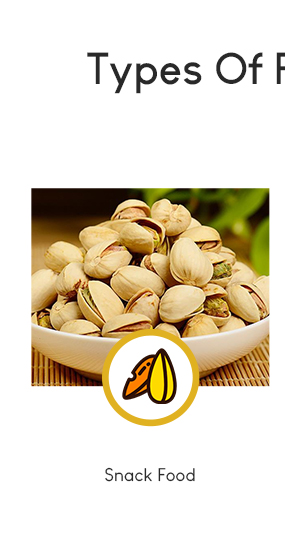 |
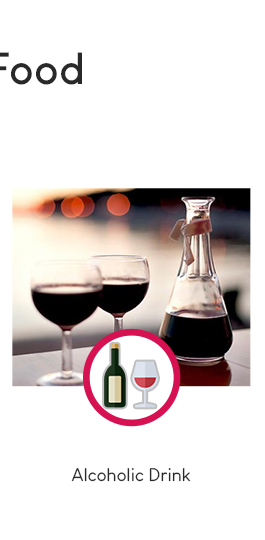 |
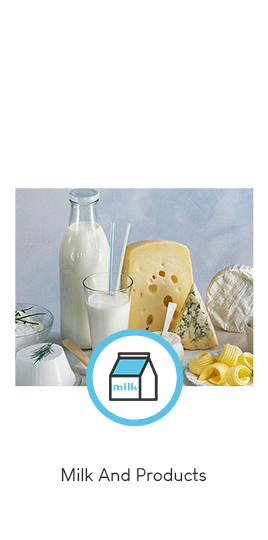 |
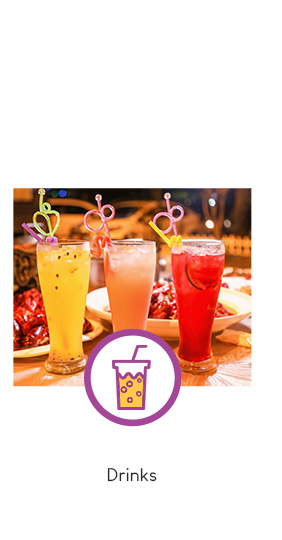 |
||
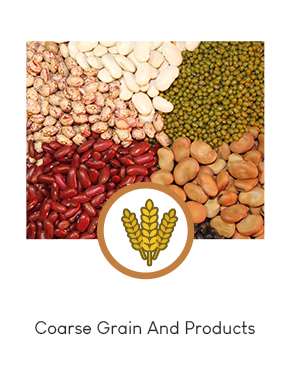 |
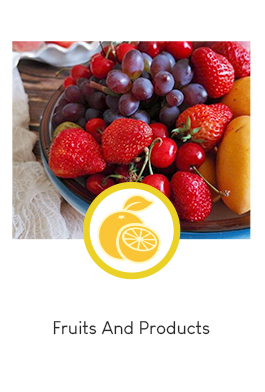 |
 |
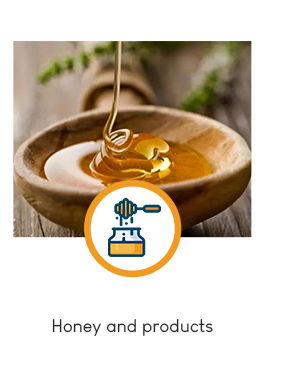 |
||
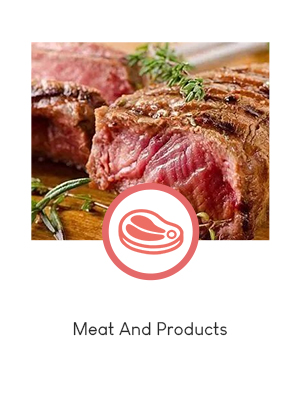 |
 |
 |
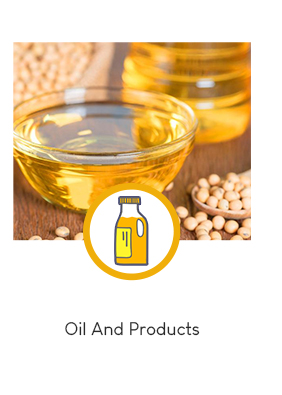 |
||
 |
 |
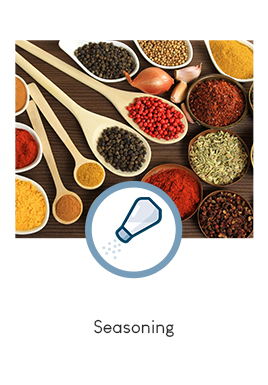 |
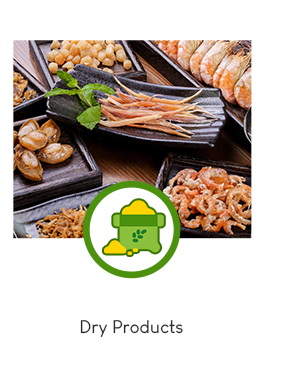 |
||
 |
|||||
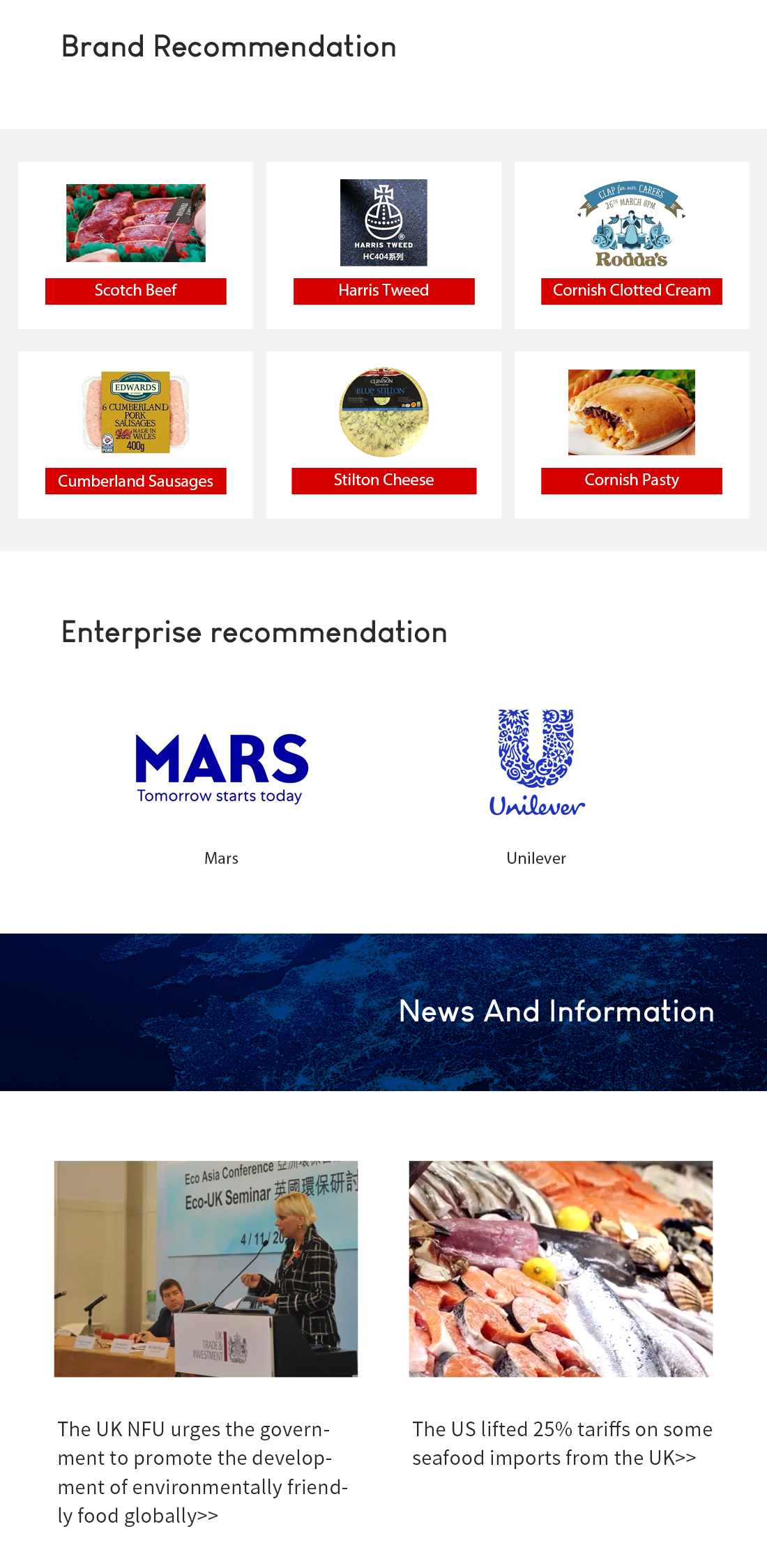
 微信小程序
微信小程序



